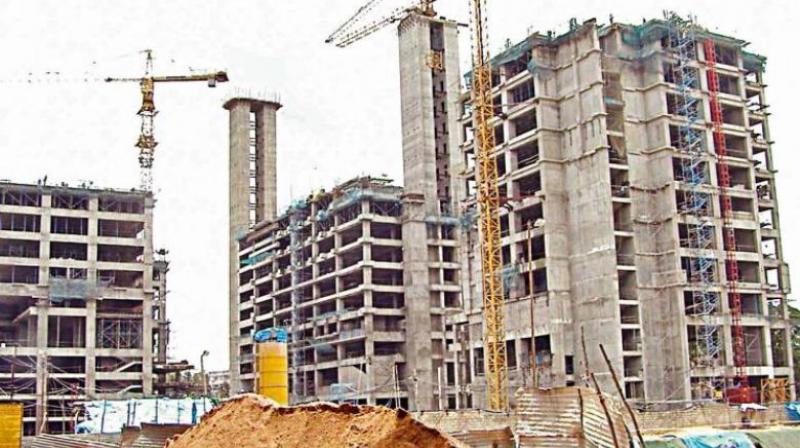Tamil Nadu framing rules to notify Real Estate Act
Tamil Nadu govt has missed the October 31 deadline set by the Central government in its advisory to notify the rules.

Chennai: Even as the Centre notified the Real Estate (Regulation and Development) (General) Rules 2016 which seeks to protect homebuyers and boost investments in the real estate, for five union territories, the Tamil Nadu government has missed the October 31 deadline set by the Central government in its advisory to notify the rules. The framing of these rules was necessitated, following the enactment of the Real Estate (Regulation and Development) Act, 2016, (Rera) , that mandates the developers to furnish additional information regarding the ongoing projects for the benefit of the buyers besides depositing 70 percent of the unused funds in a separate bank account to ensure their completion.
“The rules are not yet been notified. It is in the process,” state housing and urban development department secretary Dharmendra Pratap Yadav told DC. Apart from the Centre notifying the rules for five union territories without legislatures, the Gujarat is the only state to notify the rules till date. As per the provisions of the Real Estate (Regulation and Development) Act, 2016, Real Estate Regulatory Authorities are required to be put in place by April 30, 2017, before the full Act is brought into effect, the next day.
As per the rules notified by the Centre, the developers have also been mandated to upload various information about the project, including the number and type of apartments or plots, garages booked, status of the project with photographs floor-wise, the status of construction of internal infrastructure and common areas with photos. "The Act is a very positive development. At least, it will regulate the industry. It is good for the customers as well as developers. The only impact will be marginal increase in cost on account of compliance to the Rera. Other than that we don't expect any major issues," Ajit Kumar Chordia of Khivraj Group, a leading residential and commercial space developer in Chennai said. He added that when the Act comes into forces, there will be more transparency and timely completion of the project would become more important.
When asked whether the Act would cover the buyers purchasing flats from small developers, he said that any projects with over four apartments should register. "All will be coming under the regulation. On the one hand, it will be difficult for the smaller developers to survive because of the regulation, but in the long term, it will be good for the industry," he said. Developers would be required to refund or pay compensation to the allottees with an interest rate of SBI's highest marginal cost of lending rate plus two per cent for the project delay. "If the act was implemented, it will help the buyers a lot as the developer will be held accountable for the delay and made to pay for it. I had booked for a flat near Guduvancherry developed by a reputed builder in 2013. Even two years after the lapse of the promised time of handover, the work on the flat remains incomplete. Now the builder is demanding additional cost to complete the work," said K. Uma who works in a private company. If the Act was there, the builder would have been forced to pay interest for the delayed completion, she lamented.
Highlights:
70 per cent of unused amounts collected for ongoing projects to be kept in a separate bank account
Developer needs to declare original sanctioned plans, changes made later, fresh timeline for completion of ongoing projects
The interest paid by both, developers and buyers, is pegged to SBI marginal cost lending rate plus 2 per cent
Developers will need to make a host of information public and report quarterly progress on the project to enable informed decisions by buyers
The rules apply to all on-going projects that have not received completion certificate

